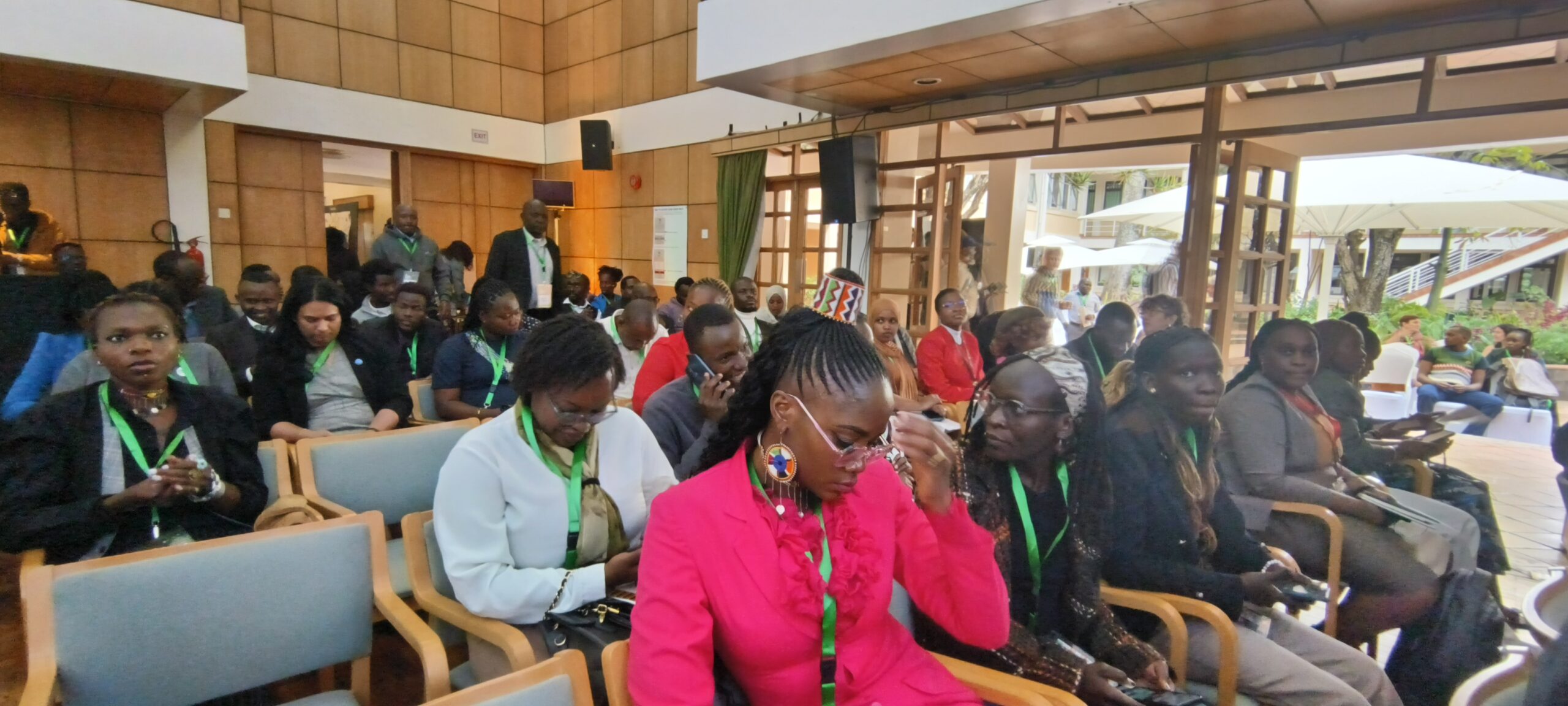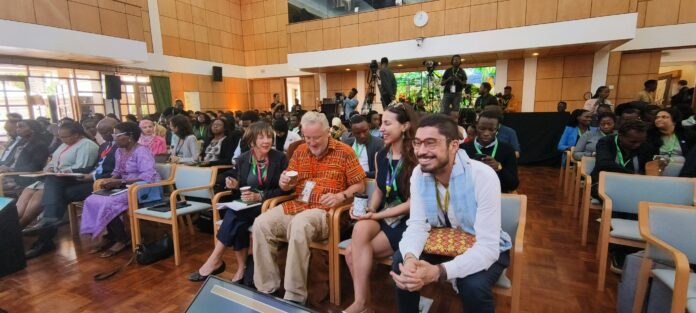By Sharon W. Kiburi
Nairobi, Kenya: Under the Food Systems, Land Use, and Restoration (FOLUR) Impact Program, the Food and Agriculture Organization (FAO) has developed a novel framework in India, Kenya, Nicaragua, Nigeria, and Vietnam.
This framework aims to expedite sustainable production, restore ecosystems, and alleviate pressure on forests. It involves collaborating with experts and landscape actors to delve into integrated landscape management and its impact on smallholder farmers and food value chains.
“As we bring in new tools and approaches, we should look at how best to integrate them into the existing functional systems so that we don’t start from zero or distort what is ongoing on the land. We don’t want to work in isolation; we want to strengthen that system,” said Elijah Mboko, National Technical Specialist at FAO Kenya.
By integrating local knowledge with cutting-edge technology and the latest science, the GLF is creating an AI hub to promote community-driven AI solutions that challenge the status quo. It will connect landscape actors and create interdisciplinary alliances to foster collaboration, innovation and inclusive knowledge.
“Together, we have the power to green Africa and beyond—for securing livelihoods, food security, climate resilience, and biodiversity conservation. Land and community are the common denominators for achieving these goals. Though the climate crisis presents immense challenges, Africa holds immense potential of rich local and Indigenous knowledge, innovative solutions, youth leaders, brilliant minds, and emerging technologies,” said Éliane Ubalijoro, Leading the Center for International Forestry Research and World Agroforestry (CIFOR-ICRAF) as the Chief Executive Officer, while simultaneously serving as the Director General of ICRAF.
Éliane was speaking at the GLF Africa 2024 Hybrid Conference, “Greening the African Horizon,” organized by the Global Landscapes Forum (GLF).
 A showcase for African innovation
A showcase for African innovation
“We need to design systems that are appropriate for the context of Africa. We need data from the places that we’re trying to understand to build better models. Let’s say, for western Kenya, we need a context-aware model that can interpret intercropping in small-scale practices,” said Catherine Nakalembe, Associate Research Professor at the University of Maryland and Africa Program Director at NASA Harvest.
A key aspect of restoring forests is planting trees, which requires effective tree seed and seedling delivery systems. At a session hosted by CIFOR-ICRAF titled “A transformative partnership platform for tree seed and seedling delivery systems,” panelists and participants explored some significant challenges in tree planting, including a lack of technical capacity and stakeholder coordination. They emphasized the need to develop a market for demand-driven native tree species, engage communities through participatory approaches, and share knowledge and resources broadly through stakeholder networks such as the nascent Transformative Partnership Platform (TPP).
Africa’s Future is Present
Africa’s population boom has been well documented, and speakers emphasized the importance of ensuring that this young demographic plays an active role in shaping the continent’s future.
“70% of the African population is under the age of 35. Youth make up a very important and critical mass of the population. The biodiversity and climate crisis requires a whole-of-society approach – everyone must take action,” said Simangele Msweli, Senior Manager for the Youth Leadership Program at the African Wildlife Foundation.
“Africa is a land of opportunities. Africa is a land of culture with enormous potential for wealth and abundance. If so, we can only say that we have succeeded when the least of us is listened to, taken care of and not left behind,” said writers and activists Felicity Asiibi Akwa and Taiye Owo in unison during a spoken-word performance.
“There is a need to decolonize how we do climate justice and land restoration. Whatever has happened on other continents, whatever the donors and the granters are saying might not be the solution for Africa. There is a need for Africa to come up with African solutions. There is a need for women to be involved in coming up with solutions to land issues that are upon them,” said Deborah Oyugi, English Countries Manager and Safeguarding Lead at Youth Initiative for Land in Africa (Yilaa).














